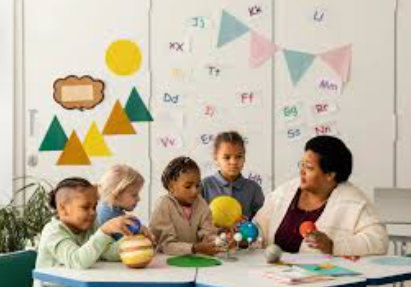
Summer is not just a time for relaxation and fun, it’s also an excellent opportunity for children to learn essential life skills that go beyond the traditional classroom setting. While academics are vital, teaching children practical skills that prepare them for real-life situations is equally important. The long summer break provides the perfect environment to foster these competencies in a relaxed and engaging way.
In this post, we’ll explore how to integrate life skills into summer learning, ensuring your child is well-equipped for the future while having a fantastic time.
Why Focus on Life Skills?
Life skills are the fundamental building blocks that help children navigate everyday challenges, make informed decisions, and interact positively with others. These skills, such as communication, problem-solving, critical thinking, and self-management, are vital for success both inside and outside of school.
Benefits of Life Skills Education:
- Promotes Independence: Children learn to rely on themselves and become more confident in their abilities.
- Enhances Decision-Making: They develop the capacity to make thoughtful and informed decisions.
- Builds Resilience: Life skills education fosters adaptability and resilience, helping children cope with change and challenges.
- Improves Social Skills: Encourages empathy, cooperation, and effective communication.
Top 7 Life Skills to Incorporate into Summer Learning:
1. Time Management: Summer is a great time to teach kids about time management. Create a daily schedule with your child, balancing fun activities with chores, reading, and creative projects. Introduce them to simple tools like planners, to-do lists, or apps that help track their tasks and activities. This helps them learn to prioritize and manage their time effectively.
2. Financial Literacy: Teach kids about money management in fun and engaging ways. Introduce them to budgeting by giving them a small allowance for summer activities. Use games like “store shopping” where they use play money to purchase items or manage a budget. Discuss basic concepts like saving, spending, and investing, and consider setting up a savings goal for a special toy or trip.
3. Cooking and Nutrition: Get your children involved in meal planning, grocery shopping, and cooking. Start with simple recipes they can follow, like making a sandwich or a fruit salad. This activity teaches them about nutrition, kitchen safety, and healthy eating habits. It’s also a great way to develop math skills through measuring ingredients and understanding proportions.
4. Communication and Interpersonal Skills: Use family activities, such as game nights or group projects, to teach effective communication and teamwork. Encourage them to express their opinions, listen to others, and resolve conflicts amicably. Role-playing games can help them practice different social situations, like introducing themselves, asking for help, or negotiating with peers.
5. Critical Thinking and Problem-Solving: Incorporate activities that challenge their thinking and decision-making. Board games, puzzles, science experiments, or building projects like LEGO can stimulate creative thinking. Ask open-ended questions like, “What do you think will happen if…?” or “How can we solve this problem?” to encourage them to think critically.
6. Self-Care and Personal Responsibility: Teach children the importance of taking care of themselves. Assign age-appropriate chores like making their bed, tidying their room, or setting the table. Discuss the significance of hygiene, grooming, and physical exercise. Encourage them to set personal goals and track their progress.
7. Environmental Awareness: Summer is a perfect time to connect with nature and teach kids about environmental stewardship. Organize activities like recycling projects, gardening, or nature walks to help them understand the importance of caring for the planet. Discuss concepts like reducing waste, conserving water, and protecting wildlife.
Creative Ways to Teach Life Skills During Summer

1. Outdoor Adventures: Take advantage of the warm weather to explore outdoor activities that teach life skills. Plan a camping trip, where children learn basic survival skills like setting up a tent, building a campfire, and navigating using a map. Or go on a nature scavenger hunt that encourages observation and critical thinking.
2. Community Engagement: Encourage children to participate in community service or volunteer activities. This could be helping at a local charity, organizing a neighborhood clean-up, or visiting an elderly home. These experiences teach empathy, compassion, and social responsibility.
3. DIY Projects: Engage children in Do-It-Yourself (DIY) projects like building birdhouses, crafting, or simple home repairs. These hands-on activities promote creativity, resourcefulness, and problem-solving skills while giving them a sense of accomplishment.
4. Family Challenges: Create fun family challenges that promote teamwork and healthy competition. For example, a cooking contest, a reading marathon, or a science experiment day. Such activities build confidence, encourage learning, and bring families closer together.
Conclusion: Make Summer a Season of Growth!
Incorporating life skills into summer learning is a win-win for both parents and children. It transforms the summer break into a season of growth, creativity, and meaningful experiences that will serve them throughout their lives. The best part? Learning these skills can be fun, memorable, and incredibly rewarding!
Ready to turn this summer into a life-changing learning adventure for your child? Start by implementing these practical life skills activities today!
Don’t miss out on more practical tips and activities to enrich your child’s learning journey! Subscribe to our blog for more engaging content and stay updated on the best educational strategies.








